Did you know that your core values likely align with veganism already? Learn the impact your individual choices have on the world around you and how simple actions you take can help the planet, human society, and other sentient beings.
This speech relays some of the primary reasons for going vegan through an approachable delivery style. It highlights how your core values likely align with veganism already.
You’ll learn the impact your individual choices have on the world around you and how simple actions you take can help the planet, human society, and other sentient beings.
Technical Notes: As this article is a speech transcript, the written version will reflect a spoken delivery and also may not properly relay the speaker’s pace, tone, and emphasis.
If you’re concerned about the state of our world, if you love animals, if you care about the environment, if you want to be healthy, and if you want to feed the world’s hungry, open your mind and heart and listen.
My hope is that this talk will help non-vegans and vegans alike. If you’re vegan, I may still talk about issues you’re not aware of—or perhaps help you learn ways to talk to non-vegans about veganism.
If you’re non-vegan, I’m not here to force you into anything. I’m here to help you become aware of what’s really going on. I’m here—if I can be so presumptuous, to help you live by the values you already have.
Your Values Are Already Vegan
Most people identify as animal-lovers and at least 60% percent1 of Americans identify as environmentalists. Most people are concerned with their health and living a long, healthy, and are also concerned about world hunger.
Not only does veganism align with all of these values, it’s our only hope for fixing these crises.
I’m not going to swindle you or make up figures. I don’t have to. I’m going to be transparent with you and I’ll even tell you if I don’t know something, because believe it or not, vegans DON’T know everything.
Now there are four main reasons people go vegan, and we’re going to touch on each one a little bit:
- the health basis for veganism—which I’ll only briefly address as there are many people who can speak to that far better than I,
- the environmental basis for veganism,
- the societal basis for veganism, and
- the ethical basis for veganism.
The Sobering Statistics
Before we start, I’m going to throw out some numbers to help you grasp the enormity of what we’ll be talking about, and I want you to try and match them to what they represent.
Because it’s really difficult for us to wrap our heads around incredibly large numbers, let’s do a quick comparison:
One million seconds is about twelve days.
So one billion seconds would be what? Twenty-four days maybe? Or forty-eight?
It’s actually 31.7 years.
So then, what is one trillion seconds? It’s 31,709.8 years.
One million is a thousand thousands. One billion is a thousand millions. And one trillion is a thousand billions (or a million millions).
So now that we’ve got a bit of a scale to work with, here are some figures:
- 1 billion people were killed in all wars in all of history,2 but 8.6 billion chickens were killed in the United States alone in 2013 alone.3
- 70–140 billion gallons of water are devoted to fracking in the United States each year,4 but the country devotes 34–36 trillion gallons5 of water to animal agriculture per year. Animal agriculture uses 486 to over 1,000 times more water than fracking, and is a leading cause of climate change.
- There are 795 million hungry people in the world.6 We currently grow enough crops to feed 10 billion people but divert over half of this to our livestock.7
- We kill 2.8 trillion fish a year.8 Compare this number with the number of humans that ever existed in the entire history of humanity: 107.6 billion people.9
- 13 percent of our greenhouse gas emissions* are due to all global forms of transportation, whereas 51 percent is due to animal agriculture.10
As a species we are killing our planet, trillions of other beings, and ourselves.
While eating animals may not be the cause of all the evils and problems in our world, its impact reaches far beyond our dinner plates.
Living Our Values: Reasons for Going Vegan
Now, let’s take a look at each of the four main reasons for veganism separately, and I’ll do my best to address common objections and questions, because my hope is you’ll find that even if you’re not vegan, veganism is consistent with your own ideals and morals. Most likely it’s very, very close to your existing core beliefs.
Most of us want to be good people. We do our best. Most of us would never want to violently harm innocent beings or cause others unspeakable pain.
Most of us don’t want to destroy our planet or literally take food from the mouths of starving children. These are not actions most of us would condone or jump at the chance to participate in. Yet most of us are doing just this.
I honestly believe that the vast majority of those who consume animals and their byproducts are not doing so out of malice or inherent evil, but out of ignorance of the truth. This is why I’ve dedicated my life to helping people see these realities.
Because if we truly want to live according to our values and be the good people we strive to be, we must educate ourselves about the truth and make decisions based on facts, not fantasy.
So let’s dive into some facts, shall we?
Addressing World Hunger
Let’s start with something most people can get behind: solving world hunger. Not everyone is an animal activist or believes animals should have equal rights to humans, or even really even cares about the environment. But most people seem to agree that starving children deserve to eat.
We’ve all seen the commercials where you can donate a dollar to feed a child in some developing country. Well the reality is, one reason those children don’t have food is that it’s going to the animals we eat.
We currently grow enough food to feed 10 billion people, meaning the world’s population and then some.11 The United States alone could feed 800 million people with the grain we give to our livestock.12
The problem isn’t lack of food, it’s that we’re feeding our food to our food. If the world adopted a vegan plant-based diet, we’d have world hunger solved. (Updated note from Emily: In retrospect, I believe the way I stated this is hyperbolic and inaccurate. While we cannot solve world hunger without a global shift to plant-based diets, such a shift would not automatically address the myriad of complex issues involved in world hunger. Please see “Can Veganism Solve World Hunger?” for more details.)
Pretty simple, really. If we really do care about the starving people of the world, we need to stop stealing their food to feed to our food and just eat the plant foods we already make.
For an in-depth (and updated) look at the inefficiency of animal products, the diversion of our resources, and the necessity of a global shift to plant-based diets, please see “Can Veganism Solve World Hunger? An Honest Answer“
Improving Your Health
Which brings me to the only real health point I’m going to make. As I said, there are medical experts who are far more skilled than I am in this area.
I have an entire vegan nutrition series with Dr. Michael Greger of NutritionFacts.org that you may reference for more information.
But a simple way of looking at the health aspect—particularly when it comes to concerns about not getting x, y, or z nutrient—is this: When we eat animals, we are filtering our nutrition through them.
We are eating “hand-me-down” nutrition, and with hand-me-downs always comes wear and tear and weird smells.
What I mean is that when someone asks, “where do you get your protein if not from meat,” or “where do you get your calcium if not from dairy?” I, in turn, ask, “where did the ‘meat’ get its protein from? Where did the dairy cow get her calcium from?
Invariably, the answer is: plants. When we try to get these nutrients through animals, we get more than we bargained for. We get fat, cholesterol, and acid-forming compounds that wreak havoc on our bodies.
So let’s cut out the middle animal and go to the source, shall we?
Saving the Environment
Now let’s touch on the environmental aspect briefly. I have a whole video that breaks this down in great detail with a lot of numbers and snarkiness, called “Everything Wrong With Environmentalism in 11 Minutes or Less.”
In short, our planet is in crisis. We cannot sustain the way we are eating.
Animal agriculture is a leading cause of climate change. As we saw, it’s responsible for up to 51% of global greenhouse gas emissions13 compared to the 13 percent of all global transportation.14
It uses a third of the earth’s fresh water,15 up to 45 percent of the Earth’s land,16 is responsible for 91% of Amazon rainforest destruction, with 1–2 acres being cleared every second.17 It is also a leading cause of species extinction,18 ocean dead zones,19 and habitat destruction.20
The efforts we make to recycle and take shorter showers are rather insignificant in comparison. A single pound of beef takes 2,500 gallons of water to create,21 and 16 pounds of grain22—which is where our world’s food is going as we’ve learned.
Using the average American consumption of meat, dairy, and eggs for the year 2000—which is the most current year with thorough data—to match the water savings alone of being vegan for a year, you would have to not shower at all for over 66 years if you took daily 15-minute showers or close to a 100 years if you took daily 10-minute showers, both with a water saving shower head.23
This isn’t even getting in-depth with species extinction, land and water pollution, Amazon rainforest destruction, and all the other ways animal agriculture decimates our planet.
But here’s a takeaway from the environmental reasoning for veganism: we have reached the point beyond personal choice, beyond “you eat how you want to eat and I’ll eat how I want to eat.” This is a global crisis and it’s not about you or me anymore.
We say that children are our future but what future can they have when we are eating the planet to death? The world cannot sustain meat, dairy and egg production. It simply can’t. This isn’t propaganda, it’s a truth even more inconvenient than Al Gore.
But the solution is so simple and it’s something that every single person can do. We may not be able to single-handedly stop oil drilling in Alaska or get companies to reduce their carbon emissions, but each and every one of us can choose what we put into our bodies and where we spend our money.
We can literally save the planet one meal at a time. That’s pretty mind-blowing. Talk about a people’s revolution!
Ending Animal Exploitation
Now I’d like to move into what I personally find the most important aspect of veganism and that’s the ethical impact. As a species, we have a very large and impressively resilient disconnect from how our food is made. We may understand, of course, that hamburger comes from cows and bacon from pigs, but what that exactly entails, we prefer to keep in the dark.
Our Reasons for Eating Animals
Our reasons for eating animals are many, but the main ones seem to be that we have to eat animals and their byproducts because of their nutrition. Or that it’s natural for us, written in our genes and part of our biology. Our ancestors ate meat, look at our canines, et cetera. Or that other animals eat other animals so it’s the circle of life.
If you can go fell a gazelle with nothing but your bare hands and teeth, then yes, eating meat is natural for you.
If you can bite into the hide of a living cow and enjoy the blood, lymph, fat, bones, and tendons, then yes, eating meat is natural for you. If you see road kill and get the munchies, then yes, perhaps you are meant to eat meat.
But look at how we eat animals. We have to hide the whole process, only interact with sterilized, disguised packaged remnants, and then cook it and slather it with spices and glazes and then think to ourselves,”how primal am I?”
But We’re Animal-Lovers
Maybe that’s not you. Perhaps you don’t agree with factory farming, and only eat cage-free eggs and grass-fed beef.
Within all of these reasons lies the heart of the disconnect. We are going against our very nature and who most of us believe ourselves to be: compassionate, good people who would never harm an innocent creature. We’re animal-lovers after all, right?
Well that’s a whole area unto itself. If there’s one thing that unites humanity across all colors, races, creeds, cultures, religions, whatever, it’s that we love certain animals and eat others.
If you live in the West, you love dogs and cats and eat chickens, pigs, and cows. If you’re Hindu in India you love cows, abstain from all flesh, but eat dairy. In one culture you eat dogs or dolphins, in another you shun the flesh of pigs.
Favoring of one group of animals over another is as universal as it is arbitrary. When we take a step back from our cultural ideas about eating animals, there’s nothing worse about eating a dog than a cow, or a dolphin than a chicken. It’s all based on our conditioning. What makes one okay to eat and the other abhorrent?
Is it because dogs are meant to be pets and cows are raised to be eaten? Tell me, then, how does being raised for food make it okay to be killed. If I raised my dog for food or, god forbid, raised a child with the intention of killing it for food, does my intention make their death excusable? How is it any less horrific for the individual dying?
We’re talking about taking a life here. There is a perception that animals “sacrifice” their lives for us. The circle of life: they die so that we may live.
But all you have to do is look into the eyes of an animal awaiting slaughter and see the terror and panic—watch them fight to the last second for their lives to know that they are not willing participants in this.
No matter how it is done, killing an animal is killing a being who very much wants to live—just as you and I, our dogs, and our cats want to live.
What About Humane, Cage-Free & Grass-Fed?
Killing is never humane, gentle or kind. Not even when it’s labeled free-range, cage-free, or humane. Free-range chickens can be crammed in a shed one top of one another with a little screened door so that they can see the outside world but not actually go out and legally, that’s “free-range.”
These labels only bring comfort to consumers, not the animals. Just put yourself in their place. Tell me how I would have to treat you to make it okay for me to kill you. How absurd does that sound?
And the insanity of all of this is we don’t need to kill animals. We’re better off letting them live—for our health, for the planet, for the hungry, and certainly for the animals themselves. Don’t worry; they won’t overrun us if we don’t eat them because we won’t be breeding them anymore!
The food industry runs on supply and demand. Stop demanding, and they’ll stop supplying. Consumers have the power here. All we have to do is take it.
What’s Wrong with Dairy?
Now I’d like to touch on dairy and eggs and some of the less-discussed aspects of veganism. A lot of people will say, “well, I’ll just go vegetarian.” And this is usually with the best of intentions.
Many people don’t know that dairy and eggs are far crueler than meat. I think most of us grow up with the idea that cows just make milk constantly, so milking them isn’t bad—and possibly even beneficial to them.
In reality, cows’ bodies work like our bodies. They only produce milk after they’ve given birth. They carry their babies for nine months just like we do and lactate just like we do, and then they stop, just like we do.
So to get cow’s milk, cows have to be repeatedly inseminated, which is a nice word for raped. Once a cow gives birth, her baby is taken away from her, and if he is a male, he is sent to a veal farm.
I’d dare say most non-vegans are even against veal. The calves are tied down, unable to move or turn around, and then slaughtered when only weeks old.
But veal wouldn’t exist without dairy. Every cup of yogurt and every scoop of ice cream is tied to the death of those baby calves.
And mother cows experience a horrific agony of their own. Cows bond intensely with their calves and will cry for days when they are taken. A former cattle rancher friend of mine turned vegan when she witnessed her cows chasing the trailer as it took their children away.
She says they cried for days and only stopped when they lost their voices. This is not anthropomorphizing. It is a mother’s grief and it’s utterly heartbreaking to watch.
After being forced into pregnancy after pregnancy, having their children violently taken and getting infections from frequent milkings, the mothers of the dairy industry finally give out at age four or five and are termed “spent.”
Allowed to live free of this exploitation, cows can live over twenty years. But when their bodies give out decades before their time, dairy cows are slaughtered for cheap meat and pet food.
On a lighter note, you have to kind of think about the absurdity of drinking the milk of a cow. Who decided that that was the animal to suckle from over every other animal? I imagine some guy in a field eyeing a cow, a wild dog, maybe a moose and saying, “that’s the one!”
No other animal is weaned from their mother and then says, “Now I’m old enough to go suck on the boob of another animal!”
Cow’s milk makes no sense for us! It’s nutritionally designed to grow a baby cow into a thousand pound plus adult rather quickly. But our nutritional needs are completely different and rather than help us grow big and strong, milk and dairy cause serious damage to our systems.
As a bonus for you, the infections that cows get from the frequent milkings transfer to their milk. There’s actually a legally allowable amount of pus in milk, termed the “somatic cell count.” There are also antibiotics and feces in milk. Pus, poop and drugs! Kinda makes you rethink rocking the milk mustache, doesn’t it?
What’s Wrong with Eggs?
Now let’s get to eggs. Eggs are one of the hardest for people to grasp ethically. We don’t have to impregnate the chickens, they’re going to spit these out anyway, right?
Well, yes in a sense. But layer hens suffer. They’re crammed into battery cages on top of one another and are driven to cannibalism, literally pecking each other to death. And as I said, the cage-free farms aren’t any better.
Farmers manipulate the light and temperature of the coop to trick the chickens into unnatural biological rhythms so that they’re producing far more eggs than is natural, all the while depleting their bodies of nutrients such that they die prematurely, again termed “spent” by the industry.
But the darkest part of egg production is what happens to male chicks. You see, we’ve segmented our animals and genetically manipulated them to such an extent to that we only have two kinds of chickens: layers and broilers.
Broilers are the ones we eat, layers give us the eggs. And broilers, as an aside, are made to grow so insanely fast that they’re slaughtered at only 42 days old. Those full-grown-looking chicken carcasses you can buy are babies.
But back to the layer chicks. In order to have a consistent supply of eggs, we have to have more layer hens, especially because their life expectancy is so low. But we only need female chicks.
The males have no place in the industry and because they aren’t broilers, they can’t be eaten. So it’s a regular practice, and I mean regular on an international scale, to throw them into a grinder alive. They are also sometimes smothered alive by being dumped into trash-cans. By some estimates, billions or trillions of newborn chicks are disposed of in that way every year. Estimates only because we don’t even keep track.
How can we, good people, animal-lovers, pay people to grind up baby chicks while they’re fully conscious? How is that something we can start the day with? What kind of person does that? Or what kind of person pays for that while refusing to take any responsibility?
Now on the less horrifying, more disgusting side of the egg issue: eggs are basically a chicken’s period when you think about it. Chickens only have one hole, called a cloaca. And from that hole they poop, pee, secret fluids, and pop out eggs. I don’t know about you, but I prefer my food not to come out of a glorified anal-vaginal combo, thank you very much.
What We Keep Behind Closed Doors
Now as for some other more “fringe” areas of veganism, I do have videos and articles addressing wool, honey, silk, and fish, and you can look into those for more information. But first, I want to play a short video.
I was going to show a graphic video but I’ve decided instead to show one that’s not graphic. However, I do want to say that I think watching graphic footage—meaning watching the reality of our food industry—is absolutely vital for those who choose to consume animal products for a number of reasons:
- Many people will not believe until they see.
- If we choose to eat animals and their byproducts, we should know what we are supporting.
- These animals deserve to have their stories told—stories that we as a society go through great pains to hide from ourselves.
If you do eat animal products but cannot handle watching the footage of those products being made, I’d just ask you to meditate on the question “If it’s not good enough for your eyes, why is it good enough for your stomach?”
That said, the video I’m going to show is not graphic, but I feel it effectively captures the horrors of the animal products industry and conveys in two minutes more than I have in this entire speech.
You cannot watch that and say that the animals we kill for our food don’t know any better. That they die peacefully and humanely. They can sense the fear. They can smell the blood. And they fight. They fight to the end.
In my years of being vegan and speaking with many, many non-vegans, I have yet to ever hear one reason that even comes close to justifying putting a sentient being through what we just saw. Not one.
Going Vegan Isn’t Giving Up Taste
We don’t need to eat animals. We benefit in every conceivable way from not eating them. And the good news is, being vegan doesn’t mean giving up taste or even giving up our favorite foods.
These days there exist vegan alternatives for virtually every meat, cheese, dairy creation—and even eggs. And you can find recipes for making your own if the ready-made alternatives aren’t available in your area or are too expensive.
Not to say anything against eating a whole foods, fresh organic produce diet—which will do wonders for your health—but the animals don’t care what we eat as long as it’s not them. And the planet doesn’t care as long as it’s not being destroyed.
So yes, you can be a “junk food” vegan. Is it the best thing for your body? Probably not, but veganism has many options and room for a multitude of dietary approaches, all equally ethical.
In Closing…
Veganism is the most powerful tool we have for saving our planet, for ending world hunger, for improving our health when we eat health-consciously, and for regaining our compassion. For becoming the people we believe ourselves to be: Good people.
And good people don’t take food from the mouths of starving children. Good people don’t destroy the planet, leaving our children futureless. Good people don’t kill newborn babies. Good people don’t rape, torture, and murder.
Yet “good people” everywhere are doing all of these things with every bite.
But we have the power to stop all of this. That’s the beauty of veganism. It happens on an individual basis.
You are the change. You decide what goes into your body. You decide whether you want to continue to have others kill for you. You decide whether you want to continue consuming death, terror, and heartbreak.
You decide. And my hope is, you’ll decide to go vegan.
— Emily Moran Barwick
Editor notes (from Emily): This speech was originally published under the title “This Speech Will Change How You See Everything”. I decided to attribute that title to a more comprehensive speech I delivered in 2016 as part of a complete overhaul of that speech’s article.


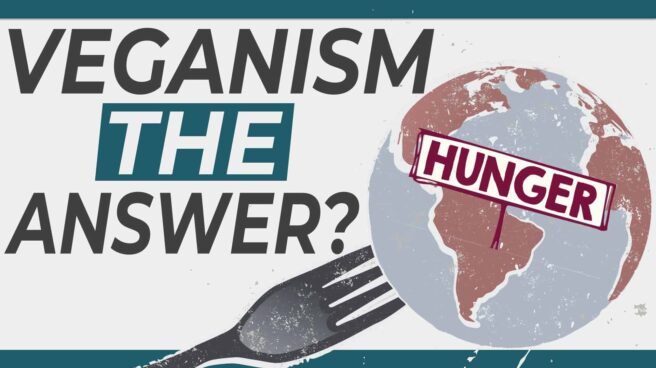

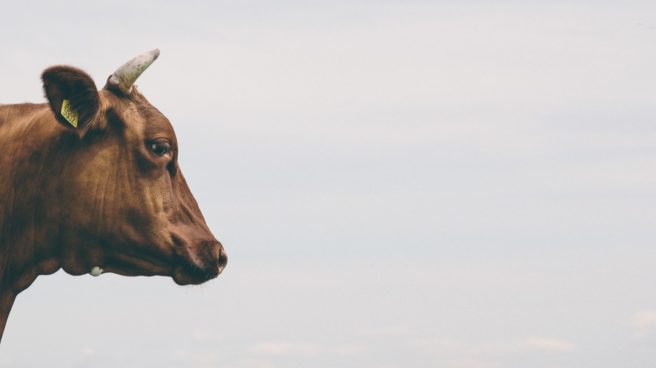
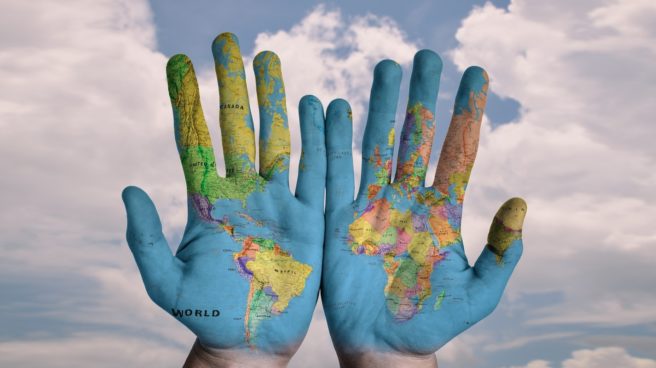
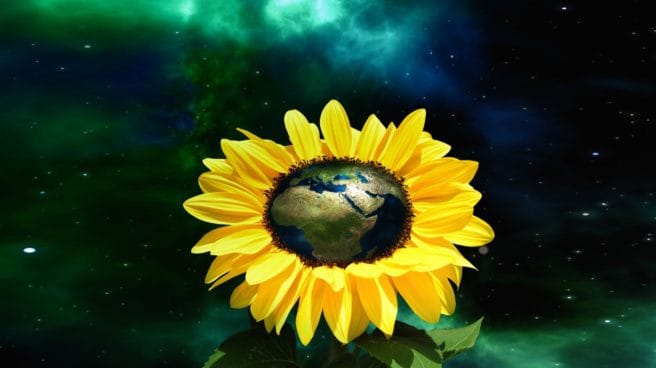
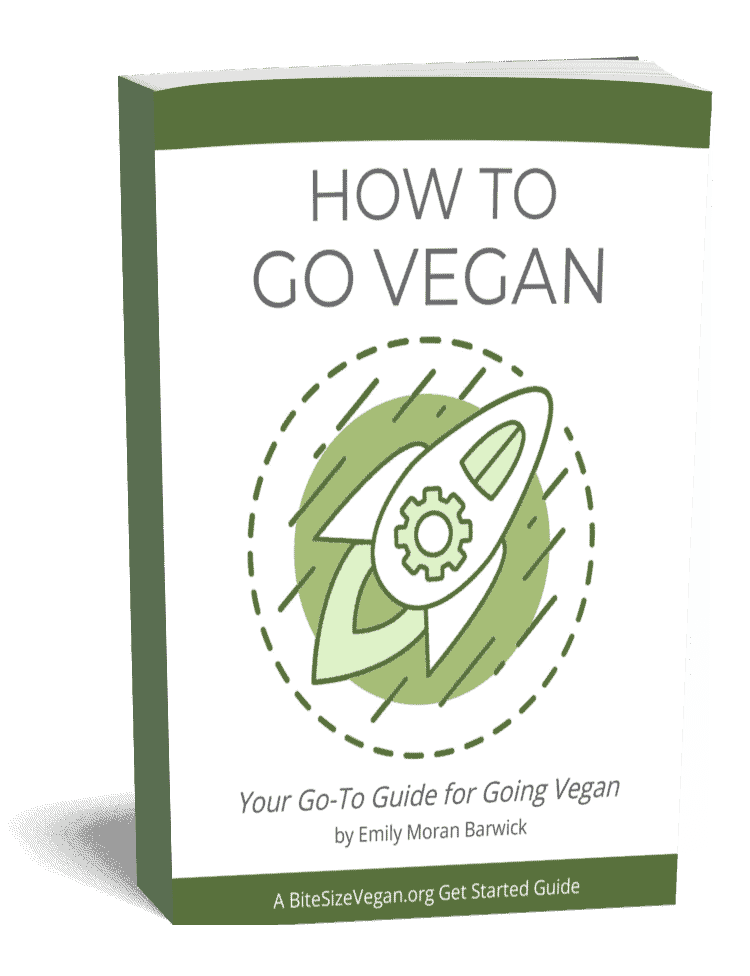
You are an excellent speaker, Emily. You talk to people not at them. Most of all you educate people. It is true Vegans do not know everything, that is why we need people like you to teach us new things.
I get so angry when I hear someone say they are an animal lover yet they eat them. Makes not sense to me.
Fish are a “’fringe’ areas of veganism”? Science has shown that fish are sentient, they are killed in vastly larger numbers than any other type of animals used as food, and they suffer some of the worst abuses. Fish are only considered “fringe” because people -including many animal rights activists- treat them like non-animals and ignore their plight. It’s gross speciesism.
I have not finished watching this – the entire thing saved for another time when it’s not so late, but THANK YOU Emily.
Also a BIG irony:
On youtube a user named Strange Fruit posted: “This was hard to watch – I’m upset at what I’ve seen & heard ! Its tough !” I avoid posting on youtube but something VERY ironic: “Strange Fruit” is also the name of a SONG…
A song that was “hard” and “tough” to listen to..but very important…Song in 1939 by Billie Holiday based on poem written by Abel Meeropol (same one who adopted the orphans of Julius and Ethel Rosenberg..Abel also wrote a hit song for Sinatra..)
I’ve included the lyrics below..but the main point is: “Strange Fruit” (the song) is a reminder to us all that things that are difficult, HARD, tough to watch or listen to, are often equally very IMPORTANT.
That is exactly the case about AR and some of the harder to watch parts of your talk (I first saw those 2 mins in talk by Dr. G while back..must be shown again&again and your great voice for it..)”Hard” and challenging to listen to but so important! Like “Strange Fruit” the song..
Maybe some day some of us will write a poem about AR that’s similar. Peace and with appreciation for your work! :-) -HB
Strange Fruit – 1939 – Billie Holiday
Southern trees bear strange fruit
Blood on the leaves and blood at the root
Black bodies swinging in the southern breeze
Strange fruit hanging from the poplar trees
Pastoral scene of the gallant south
The bulging eyes and the twisted mouth
Scent of magnolias, sweet and fresh
Then the sudden smell of burning flesh
Here is fruit for the crows to pluck
For the rain to gather, for the wind to suck
For the sun to rot, for the trees to drop
Here is a strange and bitter crop
(Carnism: “Strange Meal” is what I’d call it! -HB)
That video clip at the end just ripped my heart out of my chest. I’ve been vegan for about 8 years…and holy shit. Great job on your speech!!
Another great video, good job on such a well articulated speech!
However, I do have issue with stating that veganism could end world hunger just because even if there were more crops available for humans to eat directly, does not mean that they will be fairly distributed as they are not now.
We can only hope that with more compassion towards animals, we can also be responsible in other areas such as providing resources for people to grow and consume locally sourced produce, and producing less in areas where we grow too much unnecessarily.